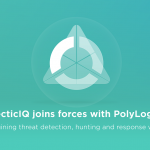Industry Talk
Regular Industry Development Updates, Opinions and Talking Points relating to Manufacturing, the Supply Chain and Logistics.Meta anti-AI mining ad

In general, if you’re not paying for a service you consume, you are the product. Posting any type of statement isn’t going to override terms & conditions you’ve already signed up to and, by using the service, continue to be bound by.
What this does show is the concern and the slow wake up by the general public to the risks of sharing our data, and how AI might use it. This applies to people as much as it does to businesses, and we should consider what we upload, store and share online. Most of us have an outlook/hotmail or gmail account we don’t pay for, it might be wise to look at the terms and conditions you’ve signed up for, and what data you may have granted access to for data gathering, and who now actually owns that data.
When it comes to AI, it completely changes the way we need to view this. AI, trained on our data, gives instant access to question and query this data. Whether this is personal information used for impersonation and account hijacking, using videos and images to create realistic deepfakes, or revealing other insights you may not have thought about.
One of the risks from AI is that it’s not infallible. We’ve all seen the meme of ChatGPT stating, as fact, there are only two R’s in strawberry. If access to your social media data, via an AI, is sold to an insurance company for example, it may interpret and profile you incorrectly as it doesn’t understand context. AI will never, fully, see the world as we do.
We’ve also seen compromises of GenerativeAI applications. Applications rushed into production on the wave of GenAI hype that are not fully understood or anywhere near as robust as they need to be. Attackers have been able to prompt multiple AI chat bots with the right questions and level of persistence to trick the AI into sharing confidential data. Somewhat ironic that similar tactics work equally as well on people as they do on the artificial intelligence that have been built to replace them. The difference being, AI can be programmatically asked to do it at scale.
GenerativeAI is a relatively new technology. We will undoubtedly continue to understand the risks it poses to our data, but also socially and ethically, as our understanding develops.










